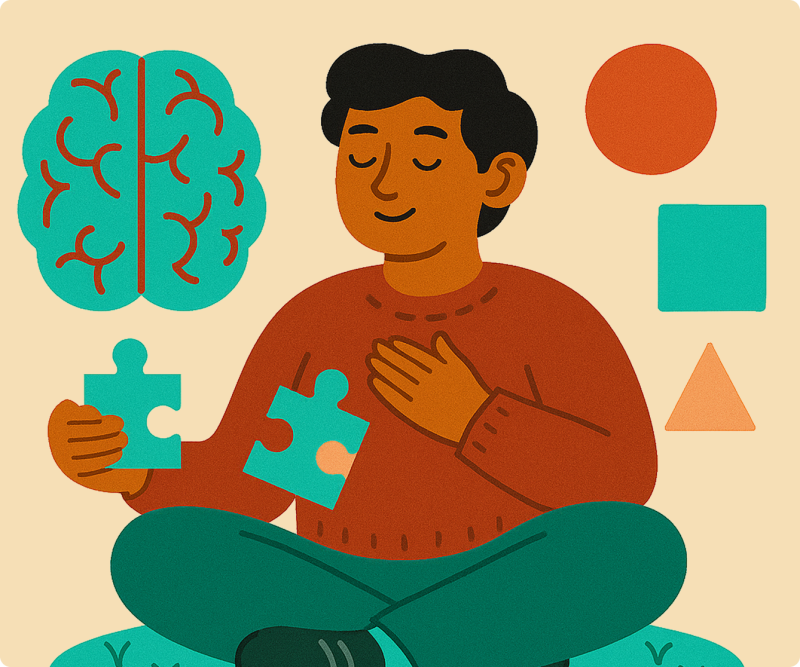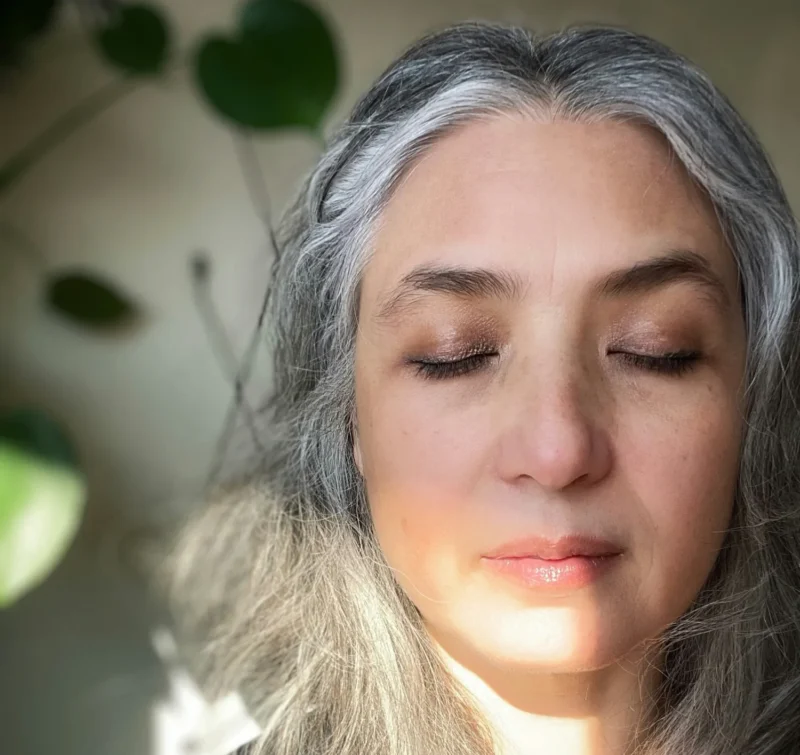
Attention-Deficit/Hyperactivity Disorder (ADHD)
ADHD (Attention-Deficit / Hyperactivity Disorder) is a neurodevelopmental condition that affects how people regulate attention, energy, impulses, and emotions. It is not a behavioural issue or personal failing — it’s a natural variation in how the brain is wired. People with ADHD often experience high energy, fast thoughts, deep creativity, or an ability to hyperfocus on what captures their interests. At the same time, they might find it challenging to sit still, stay organised, manage time or follow-through on tasks – especially in environments that rely on rigid structure.
Common signs & symptoms
ADHD can show up in many different ways. While some people experience high energy, impulsivity, or a need to move, others may appear quiet, dreamy, or often lost in thought.
Some common traits include:
- Difficulty focusing or staying on task
- Forgetfulness or losing items
- Struggling to follow through on plans or instructions
- Acting quickly without always thinking it through.
- Feeling restless or needing to move
- Talking a lot or interrupting without meaning to
- Sensitivity to rejection (often called rejection-sensitive dysphoria)
- Finding it hard to get started on tasks or manage time
- Feeling easily overwhelmed or emotionally flooded
These experiences can vary depending on your environment, age, or gender. Many people—especially girls, women, and nonbinary people-go undiagnosed until adulthood, often due to masking or being misunderstood.
What shapes ADHD
ADHD is a brain-based difference that affects executive functioning-the mental skills that help us organise, plan, manage time, regulate emotions, and shift focus. It’s primarily genetic, meaning it often runs in families, and it’s not caused by poor parenting, diet, screen time, or lack of effort.
That said, your environment matters. Living in systems that aren’t designed for neurodivergent ways of thinking can make ADHD traits feel more intense or harder to manage. School expectations, overstimulating workplaces, or rigid routines can contribute to overwhelm, self-doubt, and exhaustion.
ADHD is not a failure of willpower, it’s a different way of processing the world.
Types or subcategories
ADHD doesn’t look the same for everyone. There are three commonly recognised presentations:
- Primarily Inattentive – often marked by distractibility, forgetfulness, or mental drifting (previously referred to as “ADD”)
- Primarily Hyperactive-Impulsive – characterised by high energy, restlessness, and difficulty with impulse control
- Combined Type – features of both inattentive and hyperactive traits
At Seed, we work with people across the ADHD spectrum, including:
- Children and teens navigating school, friendships, and changing routines
- Adults managing careers, parenting, or executive functioning challenges
- Women and nonbinary people exploring late or misdiagnosed ADHD
- People with co-occurring experiences such as autism, anxiety, or trauma
What might help
Living with ADHD can be challenging-especially in systems that aren’t built for how your brain works. But with the right support and strategies, it’s possible to create more ease, clarity, and self-compassion in daily life.
You might find it helpful to:
- Use visual cues, timers, or reminders to externalise tasks
- Break larger tasks into small, manageable steps
- Create gentle routines that reduce decision fatigue
- Incorporate movement or sensory tools to support focus
- Explore medication or allied health supports if that feels right for you
- Practise self-compassion and begin to unlearn internalised shame
- Connect with ADHD communities for shared tools, humour, and validation
You don’t need to do it all alone, and you don’t need to change who you are. There’s power in working with your brain, not against it.
How we can help
At Seed Psychology, we offer warm, neuroaffirming support for ADHD across the lifespan. Whether you’re exploring a new diagnosis, navigating life with ADHD, or seeking tools that actually work for your brain-we’re here.
Our Psychologists can support you to:
- Understand how ADHD uniquely shows up for you
- Build sustainable executive functioning strategies
- Improve time management, organisation, and follow-through
- Navigate emotional intensity and overwhelm
- Strengthen communication and relationships
- Develop self-worth and reduce burnout
If assessment is part of your journey, we offer respectful, comprehensive ADHD assessments for children, teens, and adults, always with your context, identity, and goals in mind.
Wondering if you or your child might have ADHD, or looking for support to manage it more effectively?
Our client care team will help match you with a Psychologist who truly understands ADHD and honours neurodivergent ways of thinking. We offer in-person sessions at our Brunswick practice and secure online therapy across Australia.
Through connection,
change is possible
Our compassionate team at Seed Psychology is here to help you regain your wellbeing and navigate life’s challenges with greater confidence and clarity. Connect with us to book an appointment with a psychologist in our Brunswick clinic or via telehealth Australia-wide.
Available resources
Meet our amazing team of therapists
Our diverse team of psychologists offer individual, couples, and online therapy, as well as assessments. Beyond their expertise, they bring humanity and care, providing respectful, affirming support tailored to each person’s unique experience.
Freqeuently asked questions
-
You do not need a referral to see a Psychologist at Seed Psychology. However, if you’d like to claim a Medicare rebate, you will need a Mental Health Care Plan (MHCP) from your GP. With a MHCP, you may be eligible for rebates on up to 10 sessions per calendar year. These sessions can be used at any psychology clinic of your choice. To access Medicare psychology rebates, book an appointment with your GP and ask for a Mental Health Care Plan. Most referrals begin with 6 sessions, with the option to access 4 more after a review. Referrals can also be provided by a psychiatrist or paediatrician.
-
Yes, we offer in person sessions at our Brunswick East practice and secure online appointments. Our online services make it easy to connect with your Psychologist from anywhere, offering flexibility without compromising on care. Whether you attend in person or online, you’ll receive consistent, high-quality support.
-
To book an appointment, simply use our booking form, or call our client care team on 9388 8113.
-
Our goal is to make mental health care approachable, inclusive, and clear—so you always know what to expect.
Individual Therapy Sessions
- Private clients (no referral): $255 – $285
- Clients with a MHCP: $230 – $285
- Medicare rebates: $96.65 – $141.85 per session (depending on the clinician)
- Private clients (no referral): $255 – $285
-
At Seed Psychology, your safety and wellbeing are our highest priorities. While we are here to support you through regular therapy sessions, we are not a crisis service and may not be available outside of scheduled appointments. If you or someone you care about is in immediate danger, experiencing a mental health crisis, or needs urgent support, it’s important to seek help straight away through the appropriate emergency or crisis services. You can find a list of trusted organisations and services here that can provide immediate support when you need it most.











